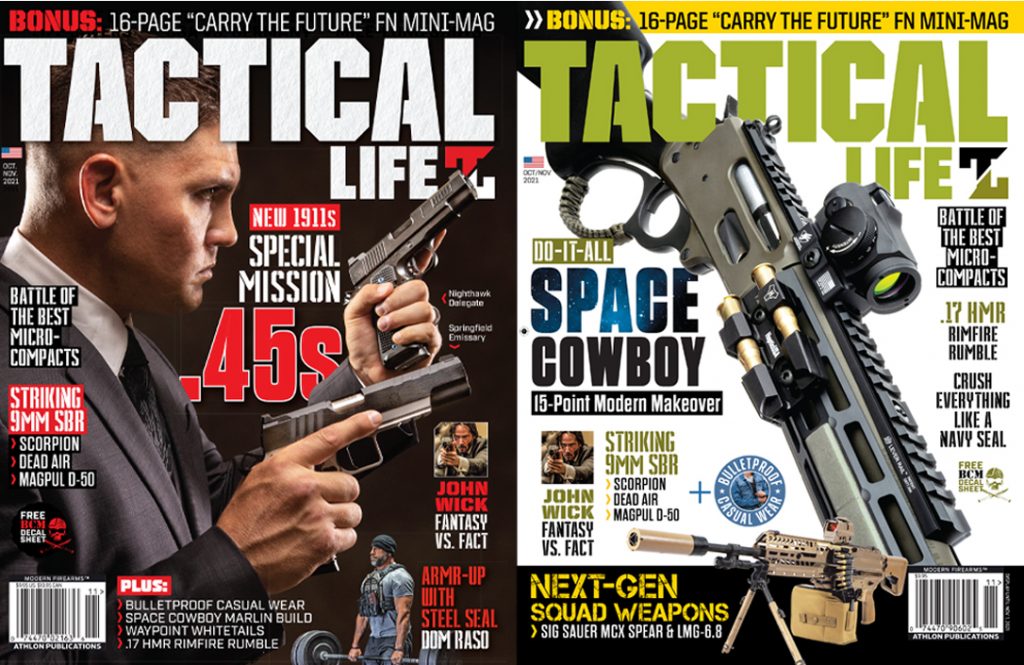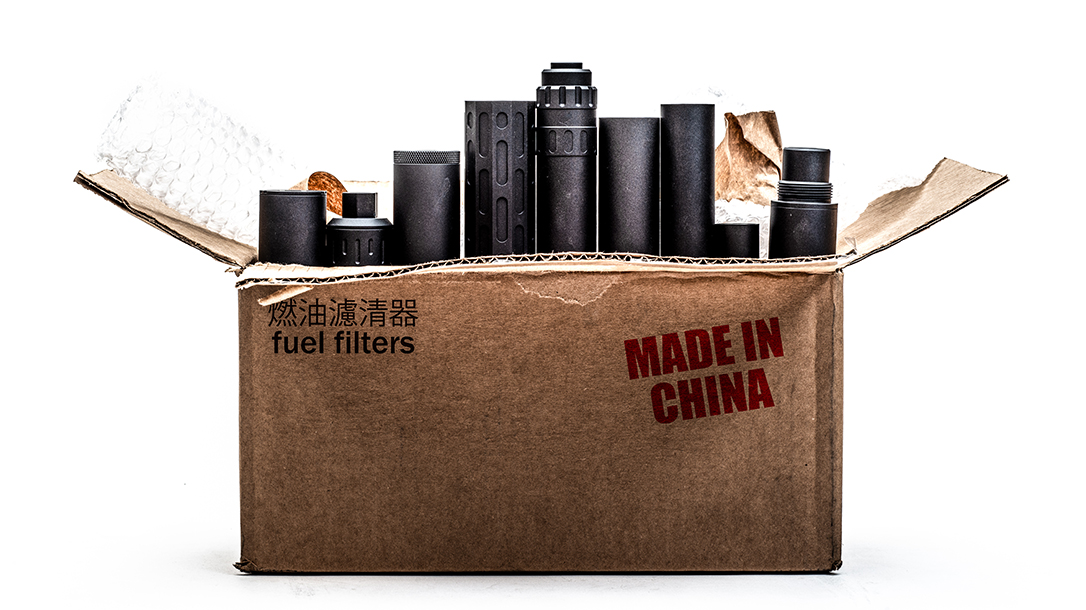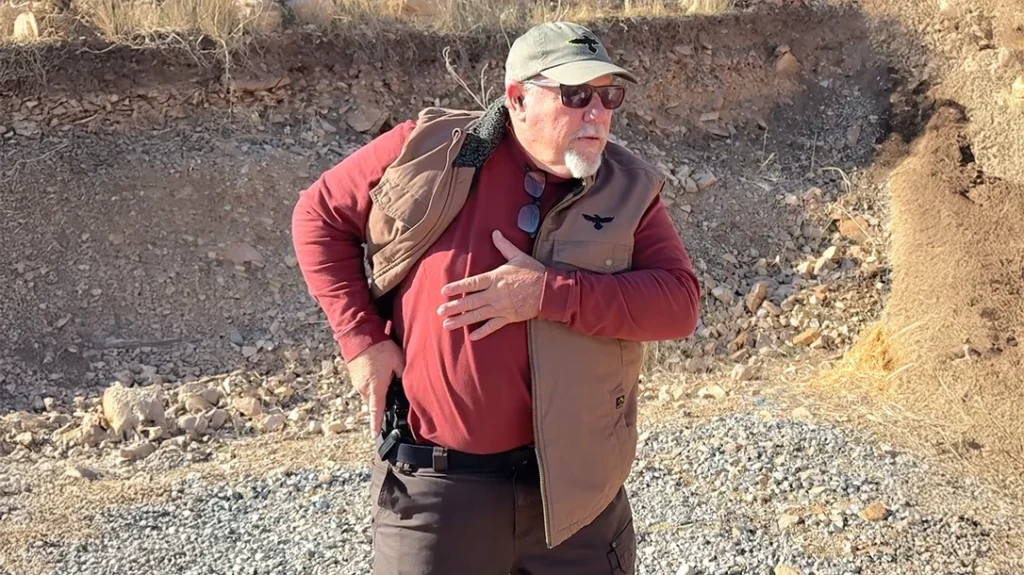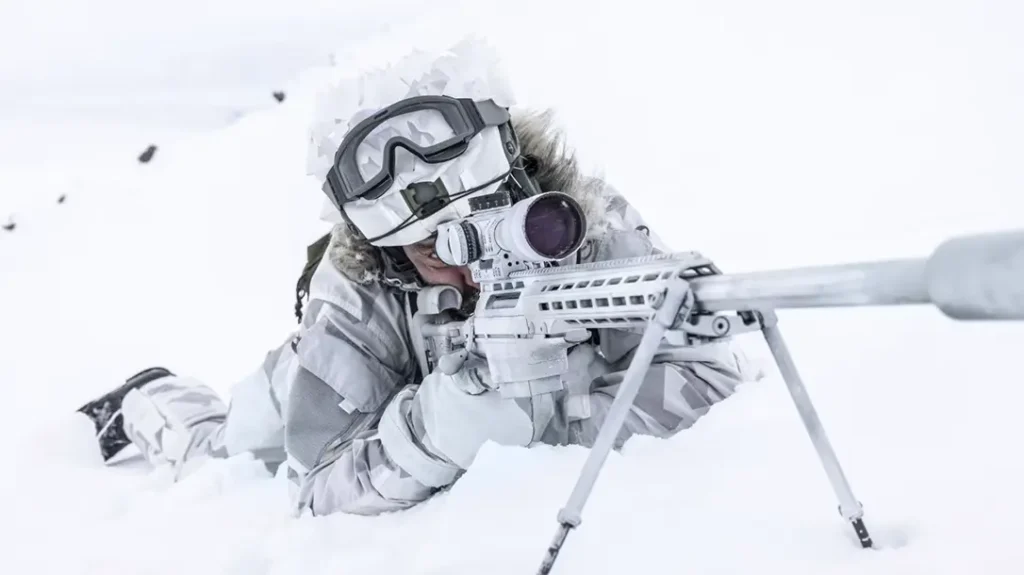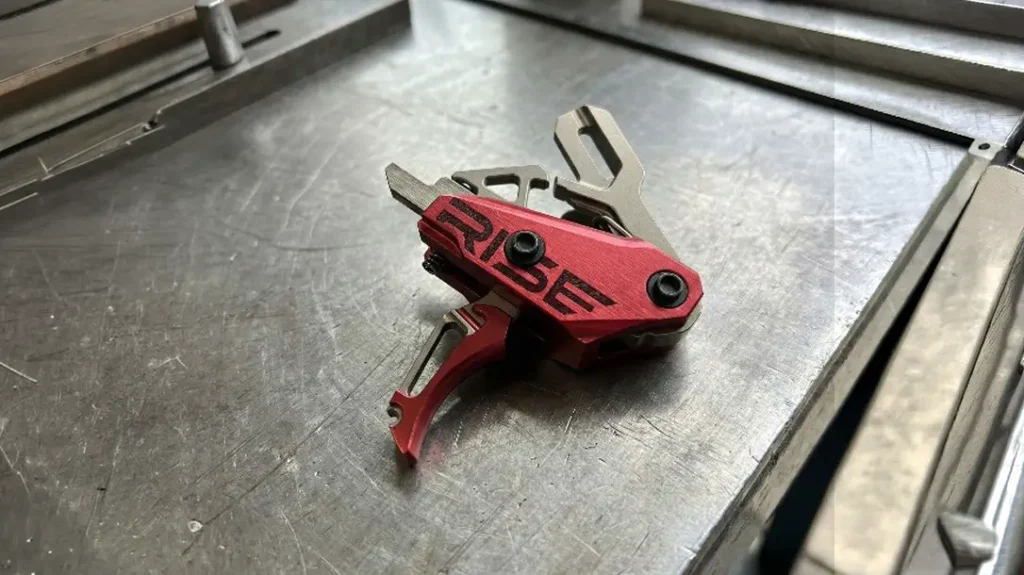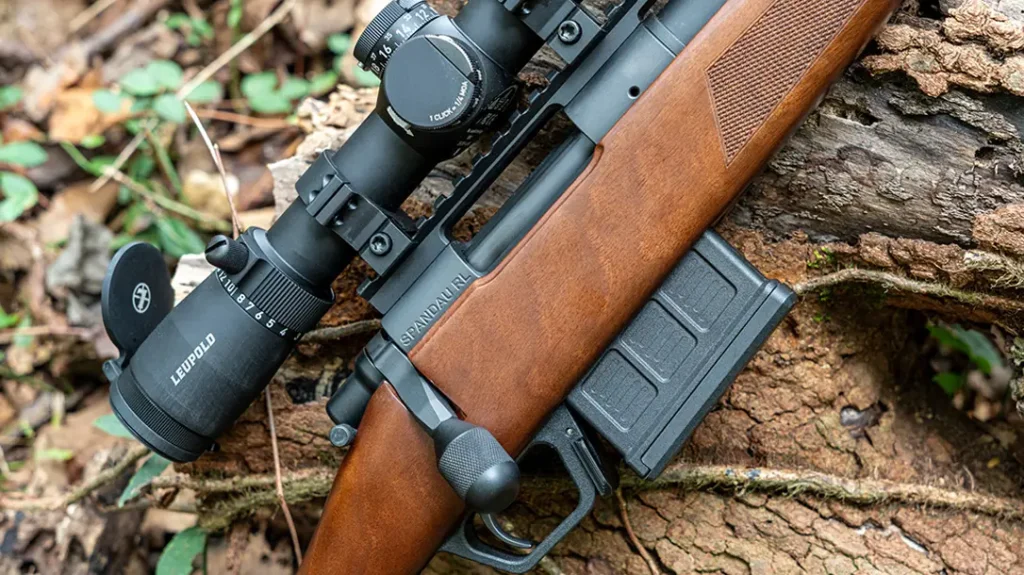The ads appear on social media sites advertising firearms silencers and, for many, the price seems just too good to pass up. The company uses Facebook or other online platforms, promising buyers a new silencer at just $99 or so. That seems like a nice deal as suppressors usually run in the $500 to $1,500 range. A couple clicks later, an order alerts of a shipment coming soon. The problem: they’re probably Chinese silencer knockoffs.
Buyer Beware: Chinese-Made Silencer Knockoffs
As with many things, however, if something doesn’t seem right, it’s probably not. A few weeks later, the suppressor arrives labeled as a “fuel filter” or “solvent trap.” This isn’t a fuel filter however, and these Chinese-made products cans skirt the law with creative mislabeling.
The devices also put Americans in danger with possible shoddy manufacturing and in jeopardy of violating U.S. federal law regarding silencers. Officials with the Department of Homeland Security (DHS) recently spoke with Tactical Life about the growing numbers of knockoff cans sold online, and the department’s efforts at combatting their purchase and import.
Advertisement — Continue Reading Below
A Growing Problem
Why would a gun owner need a silencer? While Hollywood may depict cans as tools of the trade for assassins and spies, suppressors have other more utilitarian uses. Silencers can reduce recoil and muzzle flinch, and, in turn, improve a shooter’s accuracy. Not only that but suppressors obviously also greatly reduce the noise from firing a gun, as much as 20 to 35 decibels, which can limit damage to a shooter’s hearing. This additionally mitigates noise for those nearby.
Americans purchase about 150,000 silencers a year and, while the industry is still fairly new, more and more continue to get in on the can craze. The Department of Alcohol, Tobacco, Firearms and Explosives’ (ATF) 2017 Firearms Commerce Report noted that there were almost 1.4 million silencers in the U.S. No doubt that has increased significantly over the last few years.
Homeland Security considers silencers as firearms, based on the Gun Control Act (GCA) and subject to the licensing and registration provisions of the National Firearms Act. The GCA defines the terms “firearm silencer” and “firearm muffler” as “… any device for silencing, muffling, or diminishing the report of a portable firearm, including any combination of parts, designed or redesigned, and intended for use in assembling or fabricating a firearm silencer or firearm muffler, and any part intended only for use in such assembly or fabrication.”
Advertisement — Continue Reading Below
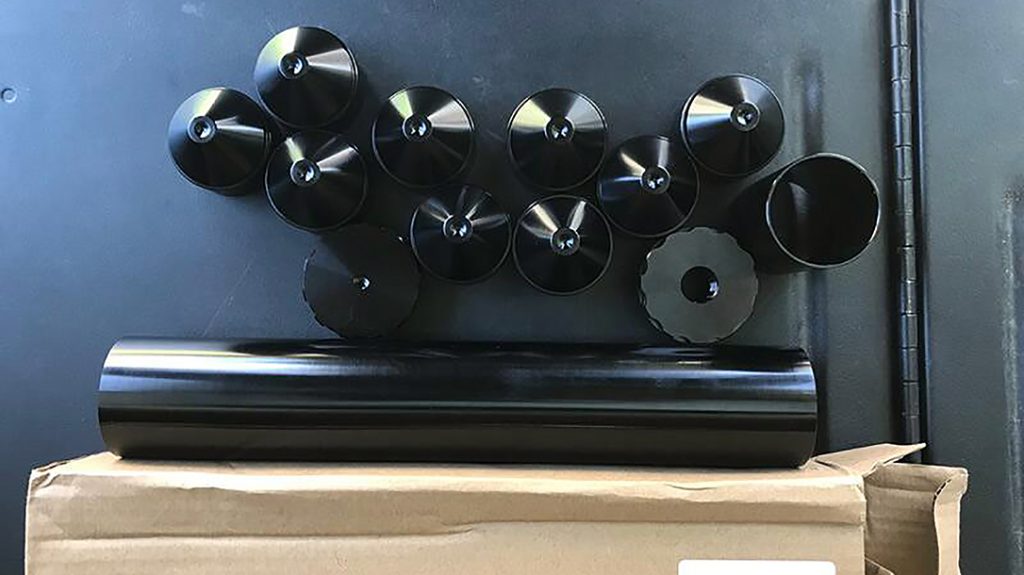
Realistic Imposters
The illegal Chinese devices often resemble and contain multiple design characteristics of firearm silencers and marketed as solvent traps, which are legal and attach to the barrel of a gun during cleaning to catch excess cleaning fluids. However, the illegal cans function in the same method as firearm silencers.
“Some devices called solvent traps may have a legitimate purpose as a firearm accessory,” an ATF official notes. “However, while the manufacturer’s stated intent for the item may be useful in classifying that item, the objective design characteristics must support this use. ATF’s position is that if an article is designed or redesigned to silence, muffle, or diminish the report of a firearm, they would be considered firearms under federal law.”
Advertisement — Continue Reading Below
“Every case is unique and requires a full and thorough investigation to determine whether the parts and components are designed or redesigned as silencer parts intended for the use in assembling or fabricating a firearm silencer or firearm muffler.”
Danger Always Possible
Josh Albrecht, owner of Truck Master Diesel, in Perry, Michigan, didn’t expect law enforcement at his home last summer. He hosts a popular YouTube channel called “Truck Master” with 156,000 subscribers. Local police and a Homeland Security agent knocked on his door to inquire about some “suppressors” they apparently believed he’d purchased.
Authorities discovered Albrecht bought several legitimate fuel filters from a company already red-flagged for engaging in illegal importation of illegal silencers. Only Albrecht’s purchases were legit. He purchased several fuel filters to spotlight on his YouTube channel and had never even heard of illegal Chinese silencers.
Advertisement — Continue Reading Below
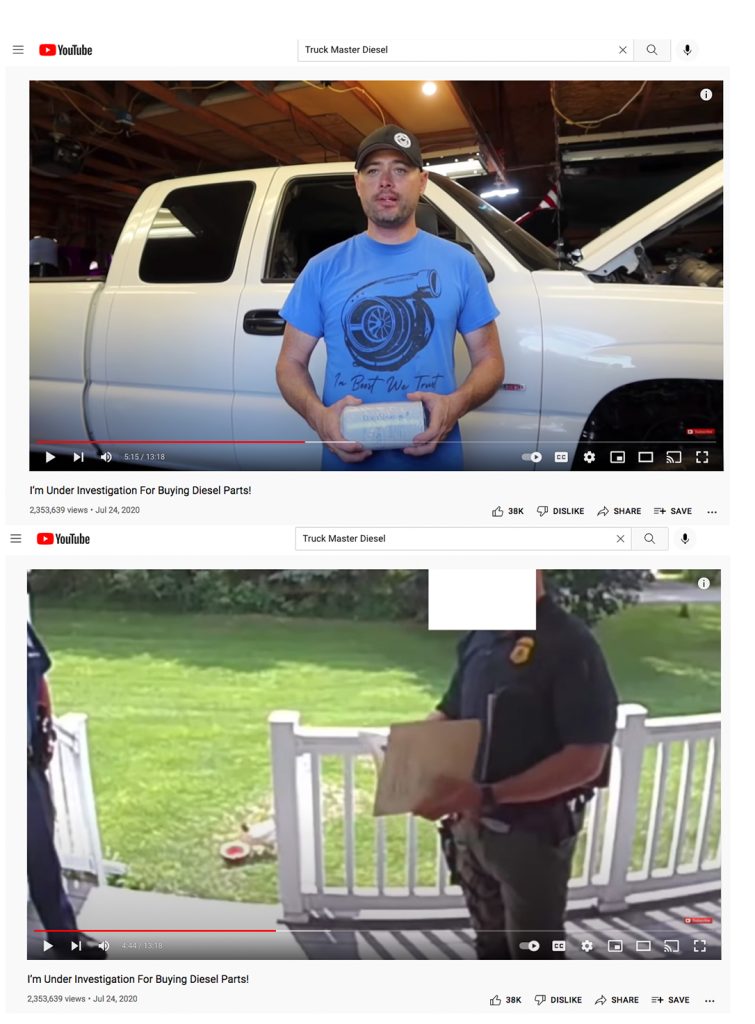
After the ordeal, he later made a video about the entire ordeal complete with security video showing the agents at his front door. He spoke about his own research into the subject after the experience, echoing the concerns of law enforcement and firearms experts.
“It’s probably a huge safety issue, buying something cheap for your weapon and it explodes on the end of the barrel,” Albrecht said.
Advertisement — Continue Reading Below
Questionable Standards
That’s one of the key dangers of using something that may have questionable manufacturing standards, according to Charles Stephenson. As a former police officer and FBI agent, he has more than 30 years of experience in law enforcement including as a SWAT firearms and defensive tactics instructor. A silencer breaks down sound waves so that they are below the speed of sound, says Stephenson, who’s also worked as an FBI National Academy instructor. Any suppressor not built well poses a potential major problem for the person behind the gun.
“If any material inside that silencer or any mechanical defect can’t handle that PSI [pounds per square inch], it could be dangerous, causing anything from the silencer itself to explode, causing the barrel of the weapon to malfunction or the gun to explode,” Stephenson said.
When it comes to a firearm, Stephenson says a user wouldn’t want to have any questions about the mechanical reliability of one of the components. That could be a recipe for disaster. He recommends using more reputable U.S. dealers and manufacturers instead of taking a chance on a low-quality item with questionable origins. Some of these Chinese suppressors also may not be able to handle high-velocity rounds as well. Stephenson says there are just too many unknowns with these types of devices. Beyond the legality of these suppressors, many users have had mixed reviews even about their effectiveness at reducing sound.
Advertisement — Continue Reading Below
Potential Serious Problems
“If I didn’t know the specifics of the manufacturer and the specifics on a silencer with a particular weapon, I’d be very concerned about it,” said Stephenson. “If any of those specifications were off, be it the ammunition or the weapon itself, you could have a real problem. The suppressor could possibly block the explosive discharge coming out of the weapon, which results in an explosion. The silencer explodes, the handgun explodes, you can have shrapnel coming out. It can be a very, very dangerous situation.
“When you have a firearm, a semiautomatic or a revolver, either one, there are immense pressures generated when that bullet is inside that firing chamber and that bullet is forced into that barrel. If you obstruct that pressure in any way other than letting it be directed out the end of the barrel, that pressure has got to go somewhere or it’s going to explode. If there’s an inhibitor in any way, the damn thing will blow up in your face.”
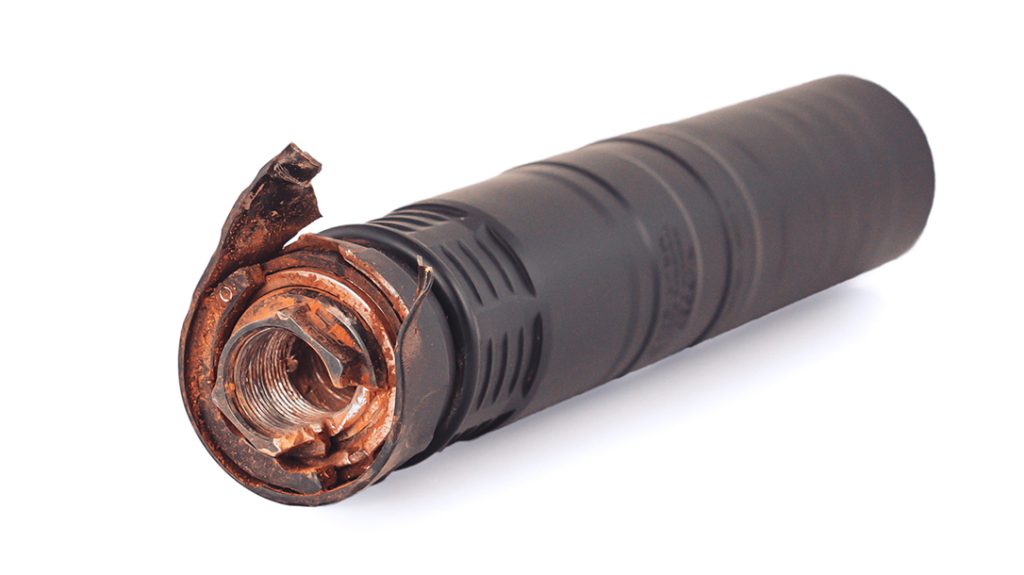
Advertisement — Continue Reading Below
Battling the Problem
Over the last two years, federal law enforcement officials have been working at limiting the illegal import of Chinese-made firearms that are mislabeled. DHS officials note that many buyers may not understand the laws regarding silencers or the dangers associated with a cheaply manufactured device. These silencers come into the country after online ordering, often making it through American ports of entry.
“Our efforts at HSI Dallas revolve around the illegal importation of these devices as customs fraud, falsely declared by consumers,” says Matt Wright, assistant special agent in charge of cybercrimes investigations and the victim services division for Homeland Security in Dallas. “Individuals who knowingly purchase illegal silencers from China blatantly disregarded our customs laws, thereby putting American citizens at risk.”
Homeland Security isn’t the only law enforcement agency working to shut down the illegal importation of these devices. In July 2020, Immigration and Customs Enforcement (ICE) officials in Detroit announced the results of a major investigation that also involved the U.S. Attorney’s Office for the Eastern District of Michigan, Customs and Border Protection, and the Bureau of Alcohol, Tobacco, Firearms and Explosives.
Advertisement — Continue Reading Below
Illegal Websites Targeted
Federal officials seized the URL of a website peddling the suppressors and visitors now will only find a notice about the seizure and the shields of the law enforcement groups involved in the investigation. In recent years, federal authorities have embraced seizing websites involved in illegal activity to suppress illicit commerce.
Homeland Security determined more than 350 suppressors seized by law enforcement across the country came from purchases from the website and smuggled into the country from China as automotive parts. The website advertised the suppressors as automotive components, but images on the site clearly resembled firearms components. Despite the closure of the site, purchasing the knockoff cans remains just a few clicks away, and law enforcement continues to work to educate the public about their dangers.
“Investigating international arms trafficking is among HSI’s highest priorities,” said Homeland Security special agent in charge for Michigan and Ohio Vance Callender after the website closure in 2020. “This website, operated from China, blatantly disregarded our customs laws, smuggled illegal silencers into our country and placed the American public at risk. By shutting this website down, we keep illegal silencers off the street and protect our communities from harm.”
This article originally appeared in a previous issue of Tactical Life magazine. Get your copy or digital subscription today at OutdoorGroupStore.com.
